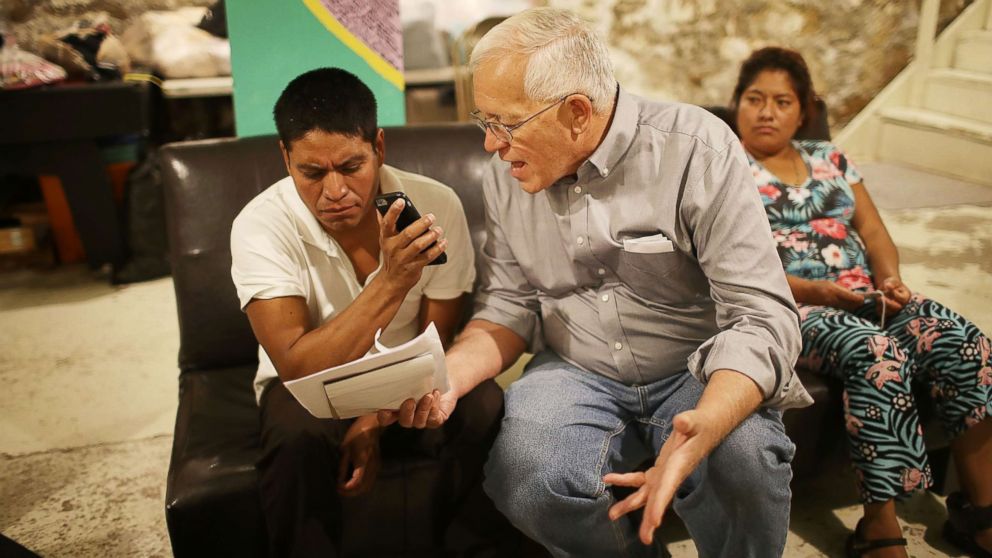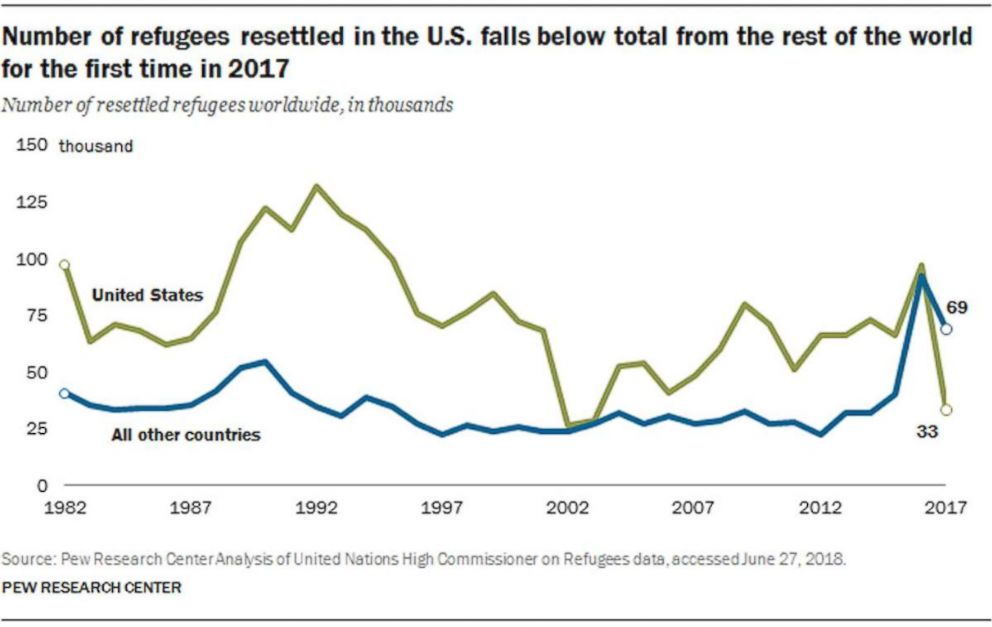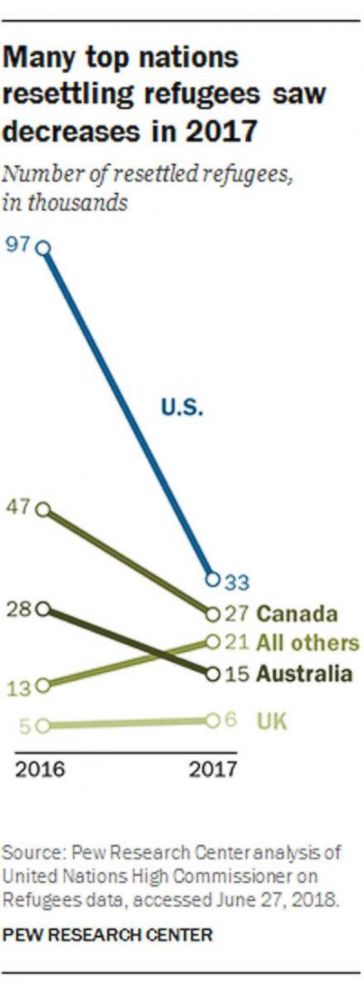2017 marks historic drop in refugee resettlement

For the first time in almost 40 years, the United States is resettling fewer refugees than the rest of the world, according to a new study by Pew Research Center.
In 2017, the U.S. resettled 33,000 refugees, a 66 percent drop from the 97,000 individuals it resettled in 2016. Non-U.S. countries resettled 69,000 refugees in the same year.
The study, which drew on data from the United Nations High Commissioner for Refugees (UNHCR) and U.S. State Department data, charted the steep decline in resettlement following the Trump administration’s historically low cap of 50,000 refugees for the 2017 fiscal year.

In September, the administration announced it would lower the cap further to 45,000 refugees for this year. And, with three months left to the 2018 fiscal year, resettlement is unlikely to approach that ceiling; the U.S. has currently admitted just over 16,000 refugees.
Andrew Schoenholtz, a Georgetown law professor and Director of the Human Rights Institute and Center for Applied Legal Studies, told ABC News that members of the Trump cabinet, including Attorney General Jeff Sessions and his staff, have deliberately slowed the refugee vetting process in order to decrease intake.
“Even though they committed to 45,000, it’s been very clear all along that Steve Miller, who is one of Sessions’ people, wanted to have 20,000 or 22,000,” Schoenholtz said. “They’ve made the system as slow as it could possibly be.”
The number of Muslim refugees admitted to the U.S. has dropped substantially more than the number of refugees from other religious denominations. The decrease follows several changes to the U.S. immigration system, including a ban restricting travel from several majority-Muslim countries that was recently upheld by the Supreme Court in Trump v. Hawaii.

Schoenholtz noted that refugee resettlement has historically enjoyed bipartisan support, with Republicans and Democrats previously sponsoring robust refugee programs. However, he said, this administration has demonstrated a broad “anti-refugee animus” particularly pronounced towards Muslim populations, and added that concerns about a threat of terrorism from Muslim refugees are misplaced.
“Muslim refugees are fleeing those who this administration is concerned about - those who are trying to damage the West through terrorism,” he said.
Dr. Zareena Grewal, a professor of American Studies at Yale University, told ABC News that several small countries surpass the U.S.'s refugee intake, accounting for relative wealth and population.
“The burden of taking in refugees is being shouldered by small countries that don’t have nearly the resources of wealthy countries like the U.S.,” Grewal said.
Grewal also emphasized the link between U.S. military policy and the growth of refugee populations in need of resettlement.
“The bombs rained down on civilians in Yemen, making them refugees, those are our bombs, and yet we’re not willing to take Yemenis as refugees,” Grewal told ABC News.
2017 marks the first year since the adoption of the 1980 U.S. Refugee Act that the U.S. has taken in fewer refugees than all other countries combined.



